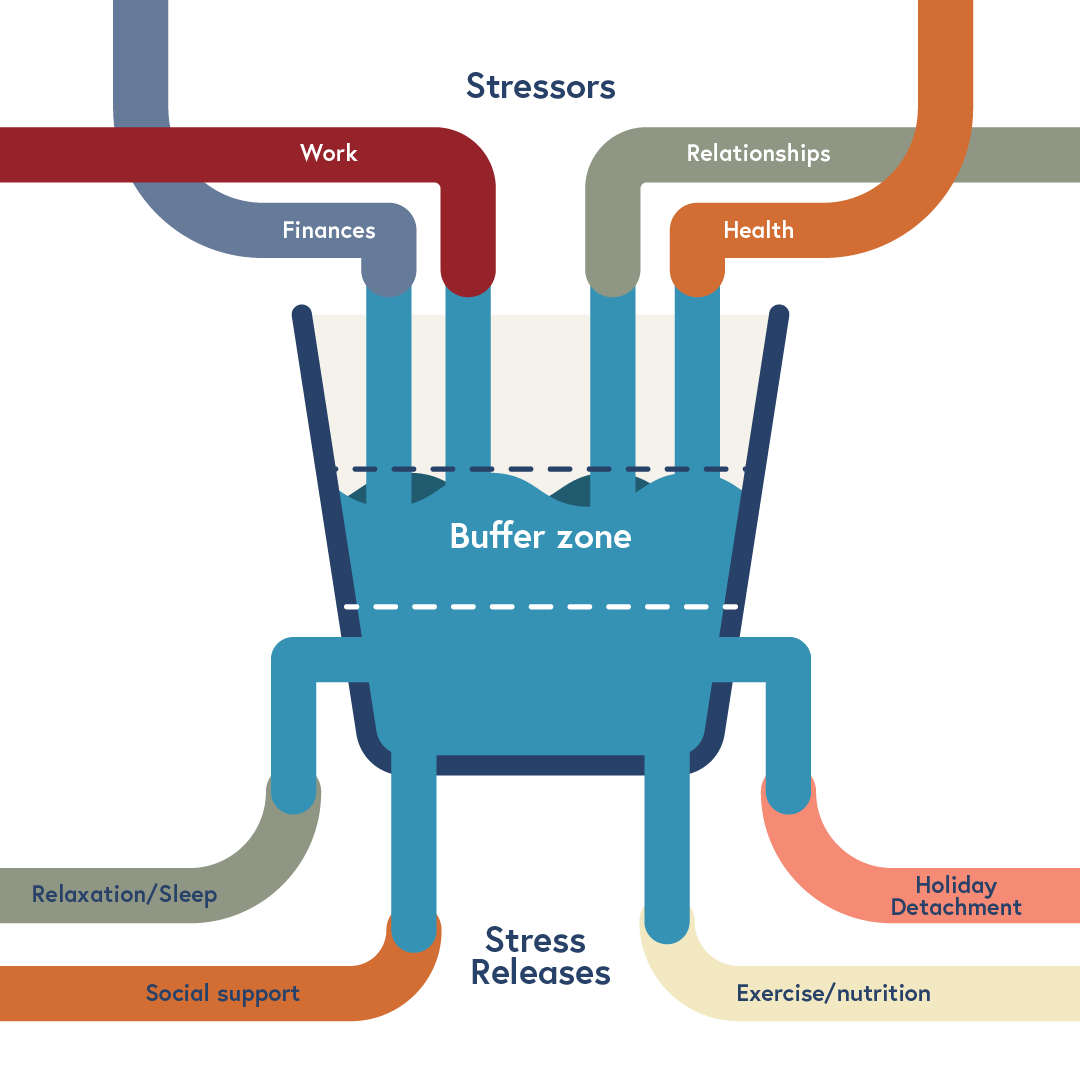
Setting Intentional Rest: 5 Strategies for Self-Care During the Holidays
Feeling like your tank is empty? It’s common to feel overwhelmed and tired before the holiday season, as various pressures such as work and family obligations set in, creating more stress and requiring us to draw on depleted energy stores. These busy holidays often leave little time for rest and self-care. However, understanding the power of intentional rest and adopting a proactive stance towards your wellbeing during this time can result in a more rejuvenating and fulfilling holiday experience!
The importance of intentional rest
In the hustle and bustle of our daily lives, we find ourselves juggling numerous responsibilities and navigating the pressures that contribute to our ever-growing workloads. As our professional demands increase and our life seems to fall out of balance, intentionally planning for rest becomes imperative. Unfortunately, the more we need it, the trickier it becomes to attain. A survey conducted on employees in 2019 revealed a 12% increase in happiness over the holidays among individuals who proactively set goals for their time off [1]. Without this proactive planning, achieving the necessary rest can prove challenging, resulting in a return to work that lacks the refreshment we need.
This is where intentional rest comes in. It’s the process by which we actively allocate time to step away from the fast-paced routine, allowing ourselves to reset, rebalance, and reconnect with ourselves and our loved ones. Failing to prioritise this intentional rest may result in heightened stress levels, potentially paving the way to burnout. This intentional rest goes beyond simply taking time off work; it extends to establishing boundaries, both socially and emotionally. During the holidays, there’s an added pressure to engage socially, plan family events, and attend every social gathering. However, recognising the need for intentional rest empowers us to set limits and ensure a healthier, more balanced approach to both work and life.
Managing your stress bucket
To appreciate the importance of intentional rest, it is helpful to first understand the effects of stress along with your own limitations. Visualise your stress container as a bucket that holds the various stressors in your life. Work pressures, family obligations, and social engagements all contribute to the water filling up your stress bucket. As the holidays approach, the bucket may start to feel heavier, but there are ways to prevent overflow!
It’s important to explore ways to empty your stress bucket effectively. Stress releases will look different for everyone: consider activities that bring you glimmers of joy and relaxation. Intentional rest plays a pivotal role here, made up of things that you enjoy but have no pressure or obligation to do. Whether it’s spending quality time with loved ones, engaging in a hobby, or simply taking a quiet moment for yourself, these ways of rest can help drain your stress bucket in order to keep it within its optimal level.

Five proactive self-care strategies
Here are five strategies that you can use to proactively plan for rest over the busy weeks ahead.
Schedule Downtime.
It’s important to purposefully set aside some downtime when planning your holiday schedule. Don’t feel pressured to fill every spare moment with jobs you’ve been putting off all year! Intentional rest shouldn’t involve a check list, but rather an organic reconnection with those things that make you feel whole, balanced, and rested. Your body and mind will thank you for it!
Set Boundaries.
Though it’s common for people-pleasing tendencies to take hold this time of year, remember it’s perfectly acceptable to say no to people, especially if you feel drained after fulfilling all your demanding end-of-year work obligations. Take the time to identify your boundaries during the holidays, whether that means steering clear of work-related tasks and emails, avoiding late-night social events, or limiting your exposure to things that drain your batteries. Your boundaries are valid, and prioritising rest will enable you to restore your energy tank for future commitments and opportunities. Remember to communicate your boundaries with family and friends, be clear about your needs and don’t feel pressured to over commit your time.
Digital Detox.
Technology can be a major contributor to our stress and likelihood of burnout. It’s important to designate device-free time to help promote moments of rest. Don’t feel pressured to constantly check emails or keep up with family group chats. Instead make a conscious effort to enjoy the little moments and be fully present without the distractions our devices introduce.
Practice Being Present.
Make a point of staying intentional and present over the holidays. One of the great things about mindfulness is that you can practice it anywhere, anytime. Stuck in holiday traffic? Take a moment to breathe slowly and deeply, and observe your emotions and the sensations in your body without judgement. Trying to get through yet another Christmas lunch or dinner? Focus your attention on the food you’re eating and try to savour it mindfully. Flopping on the couch on one of your few days with nothing on? Practice gratitude for the moment and give yourself permission to rest.
It is easy to ignore the stress signals from our bodies when we are busy or overwhelmed. By capitalising on these opportunities as they happen, we are allowing that mind-body connection to re-establish itself, making us more aware and better able to identify when our body needs rest so that we can act on this and establish ongoing strategies that enable mind-body recovery in our daily lives.
Reflect and Set Intentions.
Take time to compassionately reflect on achievements, challenges, and moments you are grateful for over the past year, and set kind and gentle intentions for the upcoming one. This could include planning for self-care. Consider whether you have taken enough time for yourself during the year and reflect on instances where you’ve felt physically and mentally rested and balanced. By analysing the factors that contributed to these moments, you will be better able to identify strategies to put in place to actively plan for rest. Remember that individual strategies for alleviating stress may vary, so it’s essential to recognise and embrace what works best for you, as opposed to comparing with others.
Keep in mind that regardless of the demands of your job or personal life, everyone deserves and needs rest! Attempt to recognise that moments of rest are not a ‘waste of time’, but rather of immense value to your wellbeing, helping to restore your mind and body so that you can be at your best.
Share this article with your team to emphasise the significance of intentional rest and make a continuous effort to encourage rest among your colleagues throughout the holiday season and the upcoming year.
[1] Giurge, L., & Bohns, V. (2021). Be Intentional About How You Spend Your Time Off. Harvard Business Review. https://www.humintell.com/wp-content/uploads/2022/07/Be-Intentional-About-How-You-Spend-Your-Time-Off.pdf


